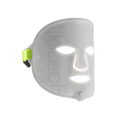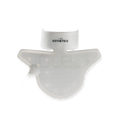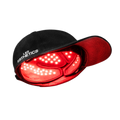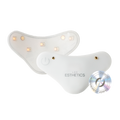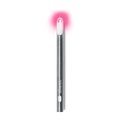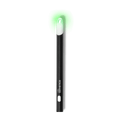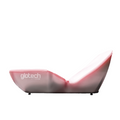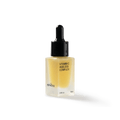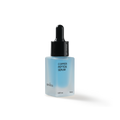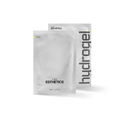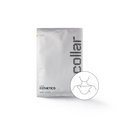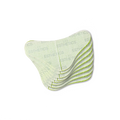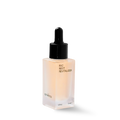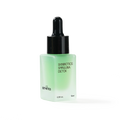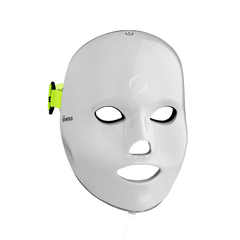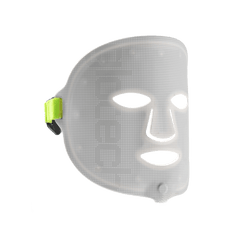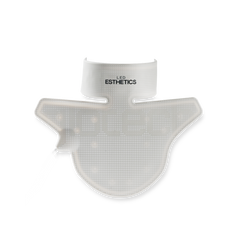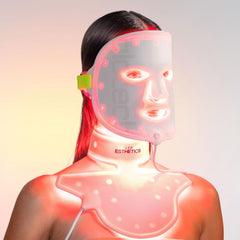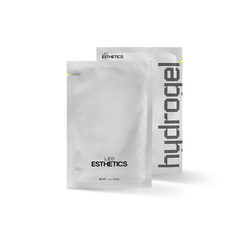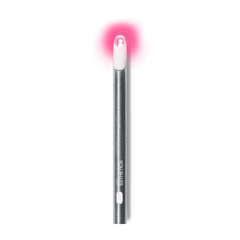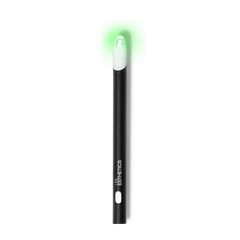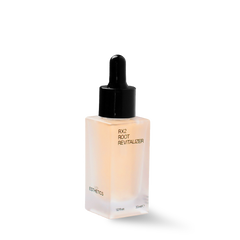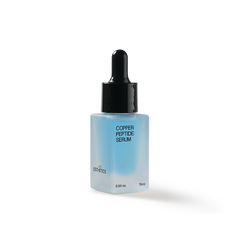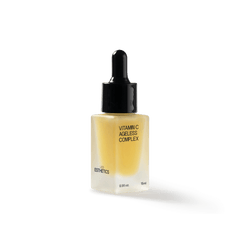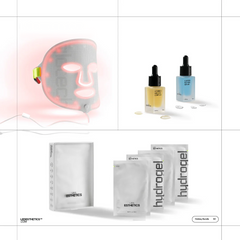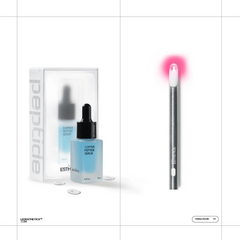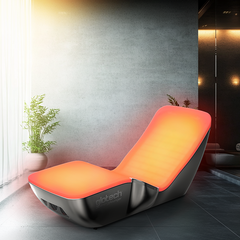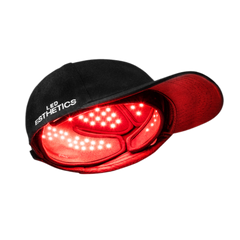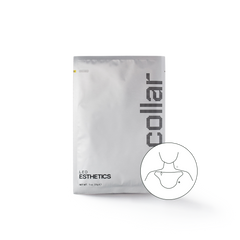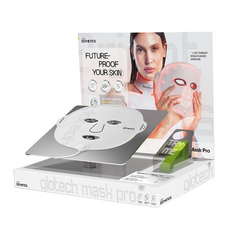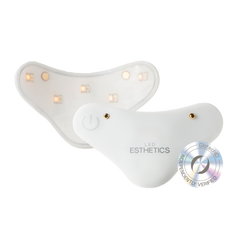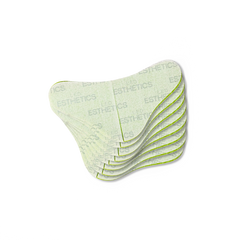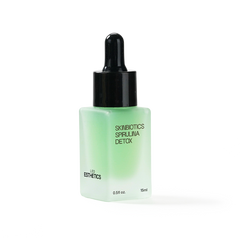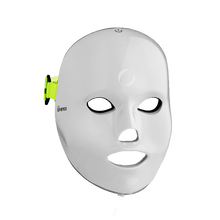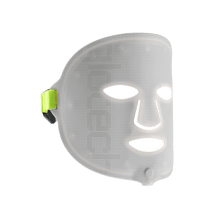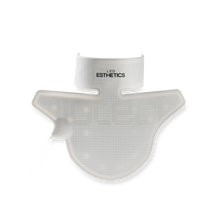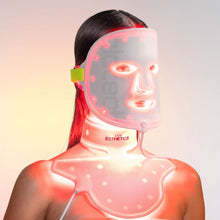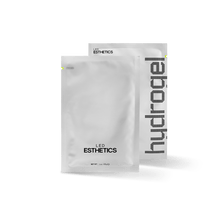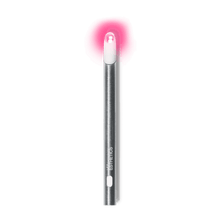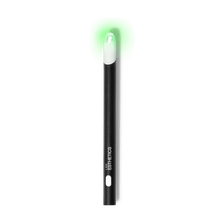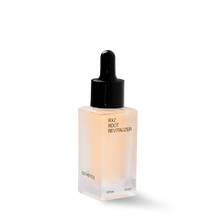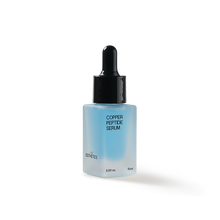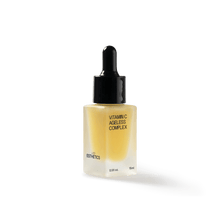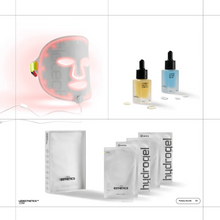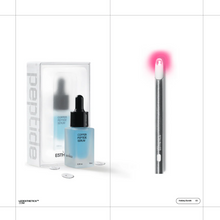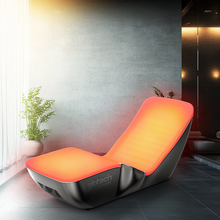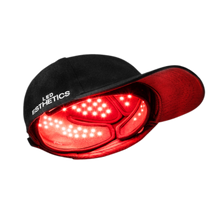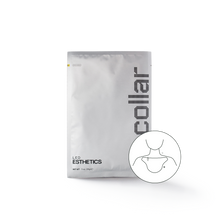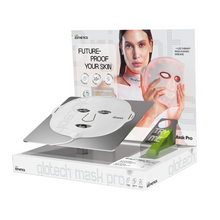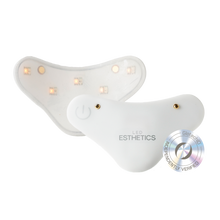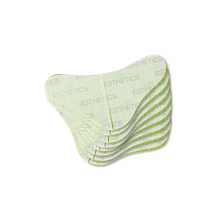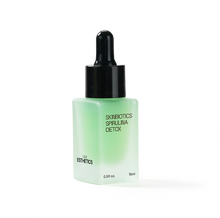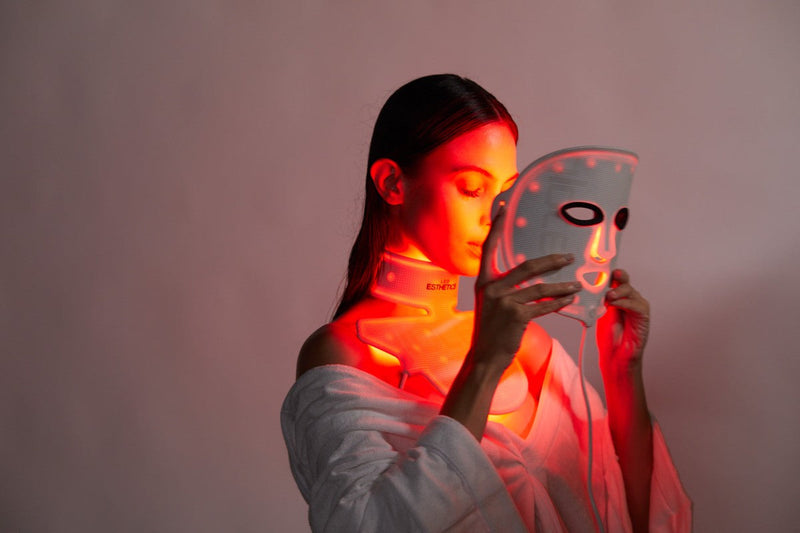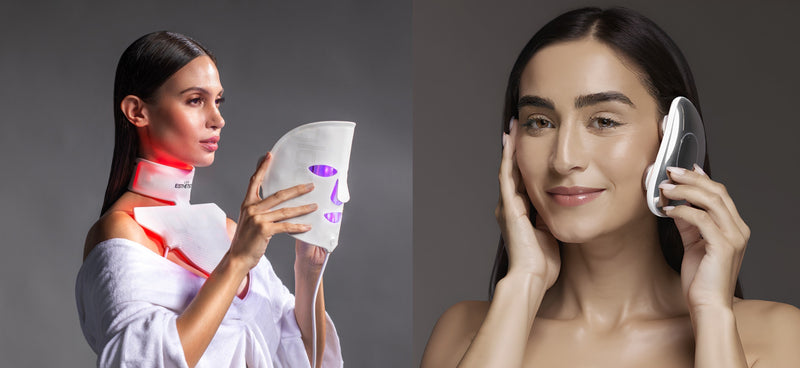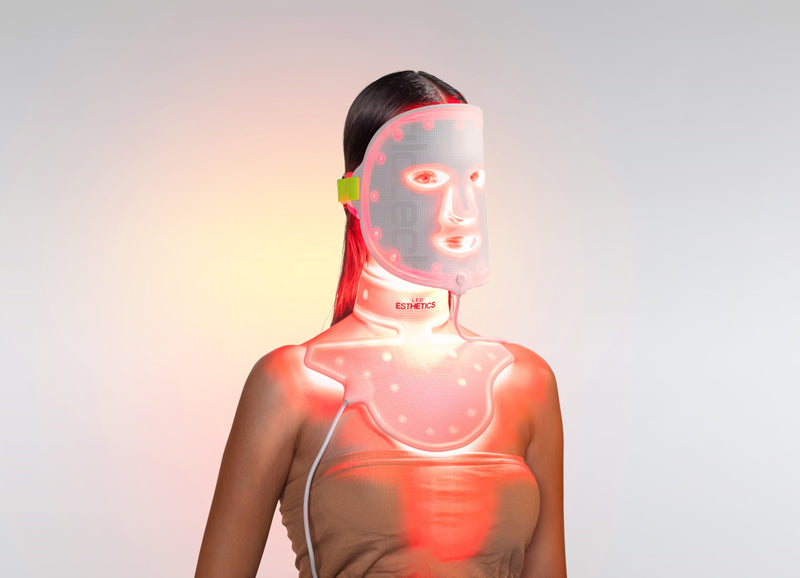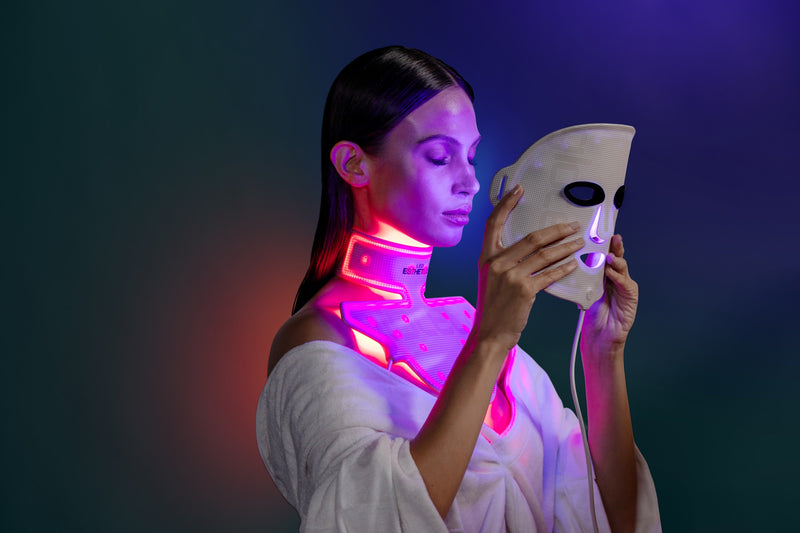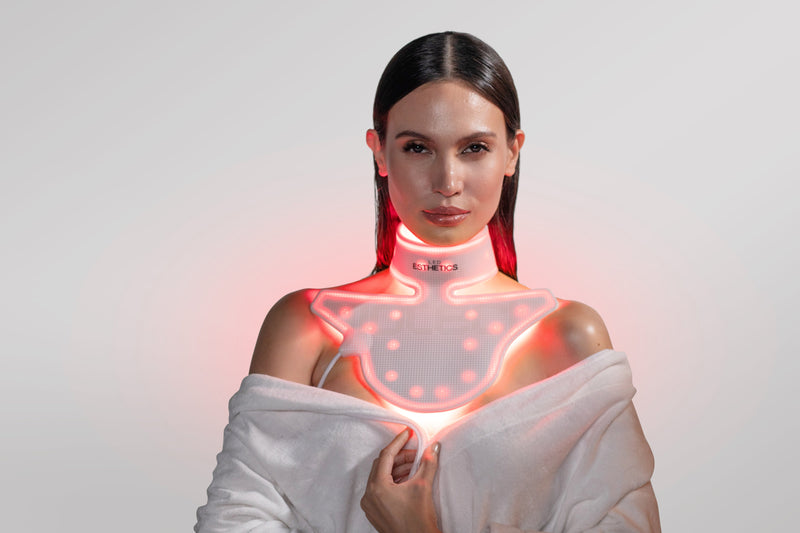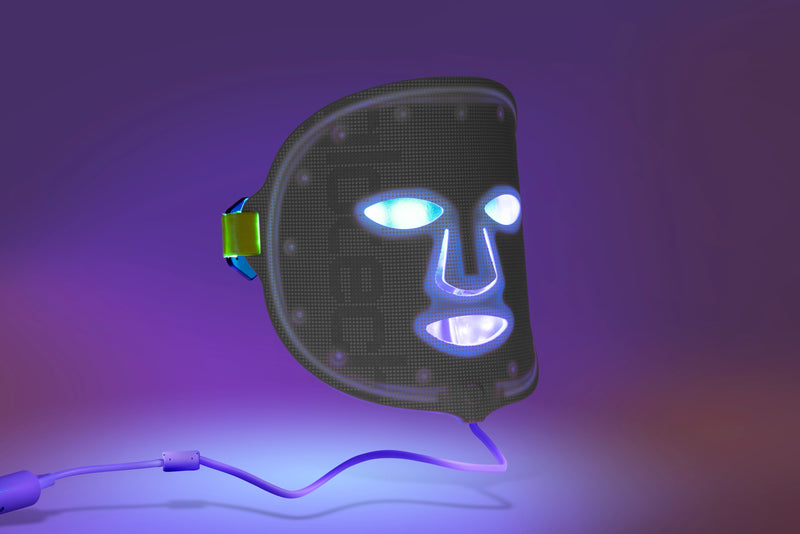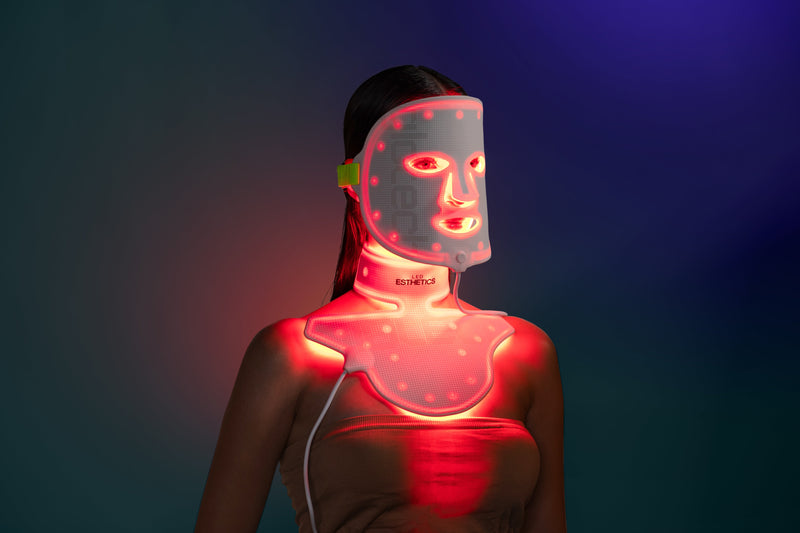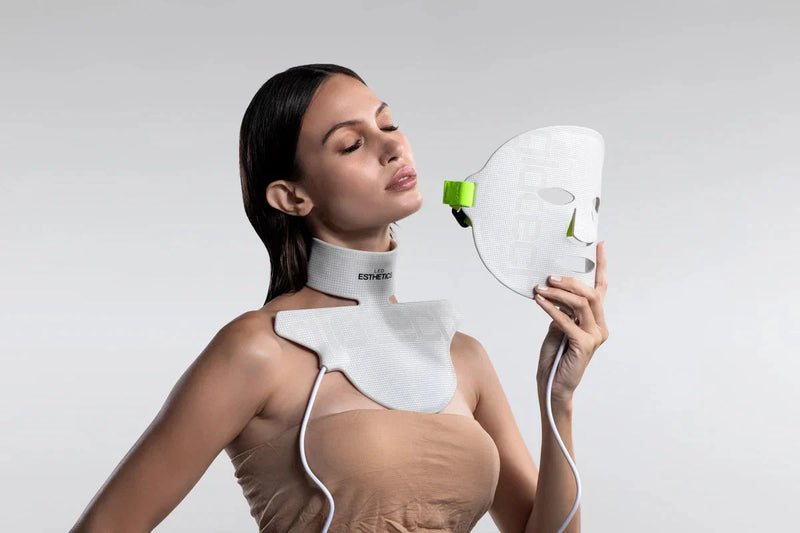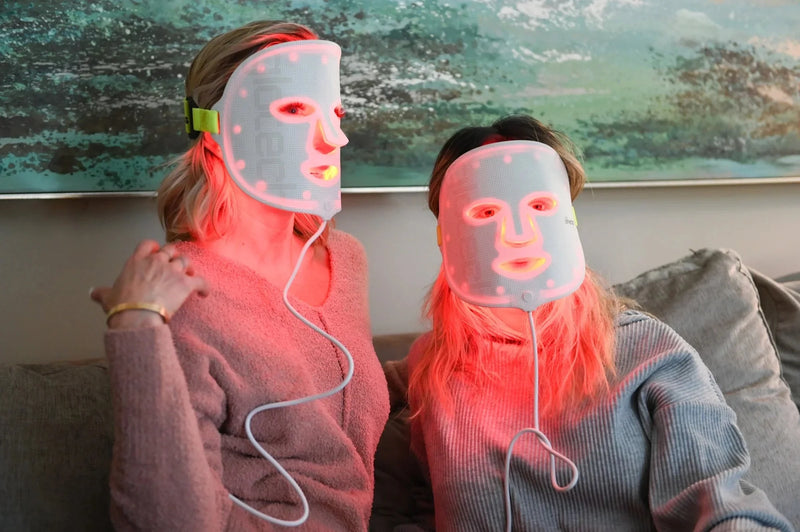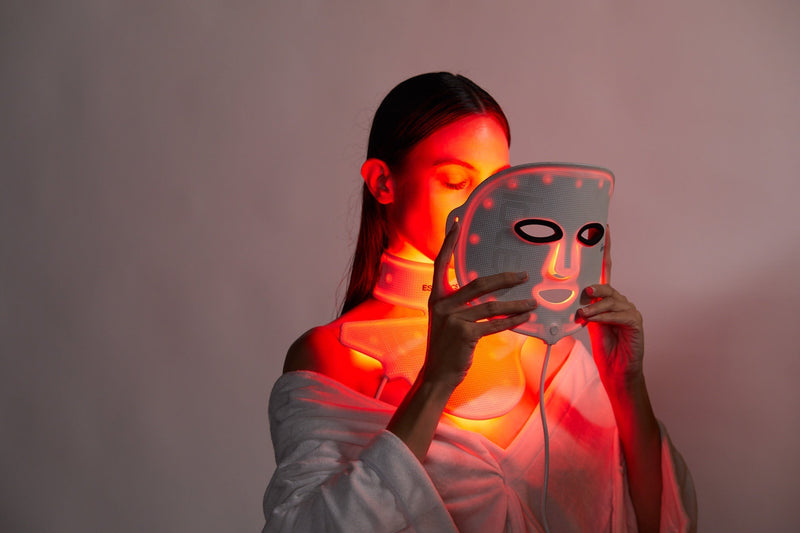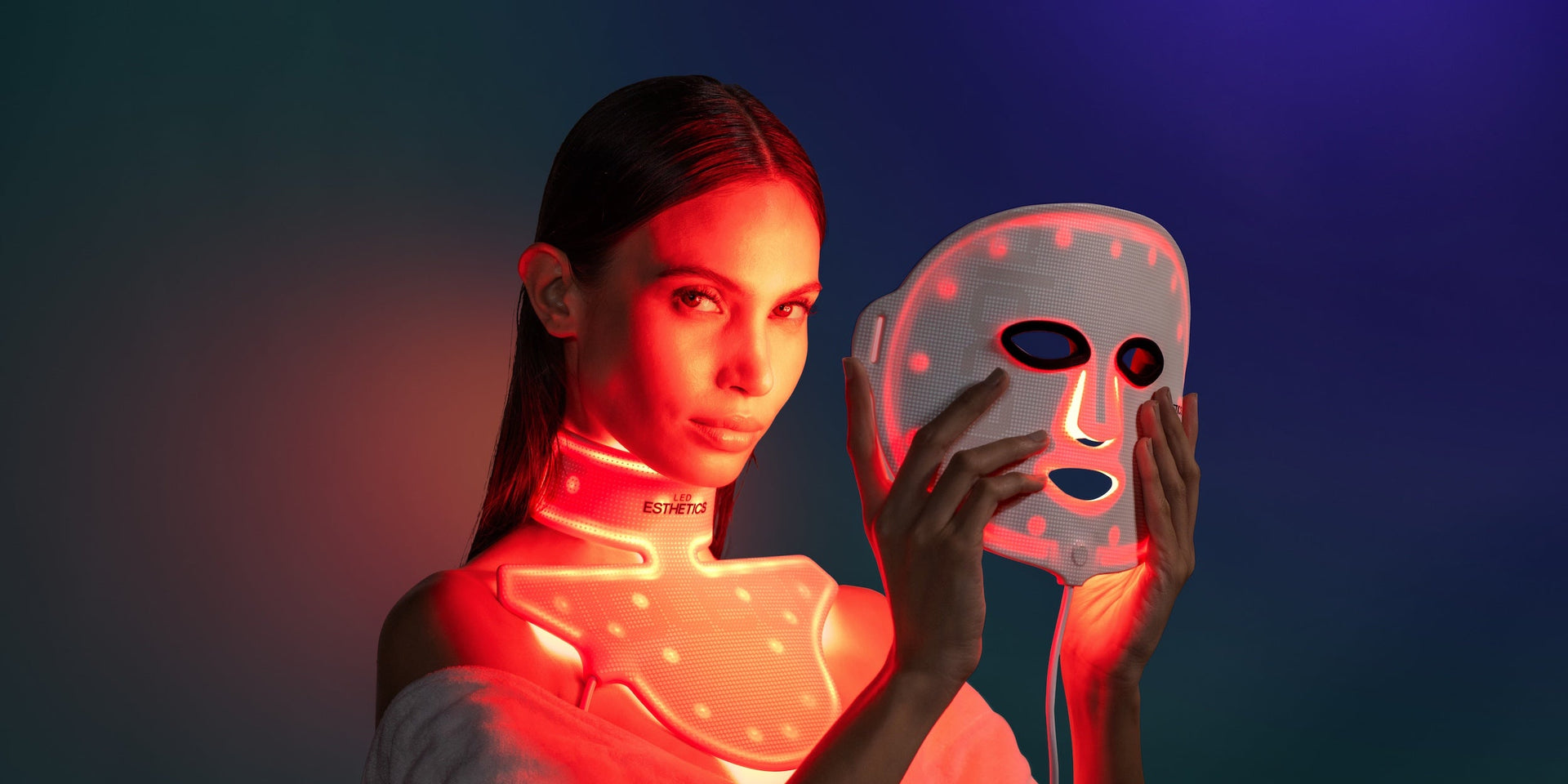
There is overwhelming scientific evidence in support of LED Light Therapy for advanced skincare and anti-aging treatment. We have compiled a number of recent studies here for you to explore. The general consensus among all of these studies is that Photon Therapy using LEDs is a safe and effective solution to numerous esthetic and medical needs.
For Wrinkles
Reduces Signs of Old Age and Crow’s Feet
In this 4-week study, the following results were observed:
- Reduced signs of aging in 90% of patients with smoother skin
- Reduction of crow’s feet
- Reduction of redness
- Increased collagen levels in 100% of patients.
Weiss. RA et al. – Clinical trial of a novel non-thermal LED array for reversal of photoaging: clinical, histologic, and surface profilometric results.
Reduces Wrinkles, Rejuvenates Skin and Reduces Pore Size
The stimulation of collagen and elastin production leads to the firming of the skin and thus a reduction of the appearance of wrinkles and the disappearance of fine lines.
Studies also confirm that a majority of people using red light see a reduction in the size of facial pores.
Pore size reduction in 90% of patients. Increased skin clarity in 90% of patients. Wrinkle reduction in 45% of patients.
Lask, G. et al. – The utilization of nonthermal blue (405-425 nm) and near infrared (850-890 nm) light in aesthetic dermatology and surgery-a multicenter study.
https://www.ncbi.nlm.nih.gov/pubmed/16414904
Russell, B.A. et al. – A study to determine the efficacy of light therapy in facial skin rejuvenation
https://www.ncbi.nlm.nih.gov/pubmed/16414908
The study showed that after several sessions of light therapy, an improvement in the complexion, softness, smoothness and firmness of the patients’ skin was observed.
Russell, B.A. et al. – A study to determine the efficacy of light therapy in facial skin rejuvenation
https://www.ncbi.nlm.nih.gov/pubmed/16414908
Stimulates the Production of Collagen and Elastin
Light penetrates the skin to the dermis where collagen production takes place. Light stimulates the production of collagen and elastin to revive the skin’s healing process.
Lee, S.Y. et al. – A prospective, randomized, placebo-controlled, double-blinded, and split-face clinical study on LED phototherapy for skin rejuvenation
https://www.ncbi.nlm.nih.gov/pubmed/17566756
Improves Skin’s Ability to Heal
Red light helps reduce old age spots, sun spots and skin discolorations. By stimulating the production of collagen, the skin cells renew and the spots disappear.
At the end of the 4-week study, 74% of patients showed a visible improvement in the appearance of fine lines and wrinkles.
Red light has also been shown to reduce sebum secretion from the sebaceous glands, making your skin less oily.
Sadick, N.S. et al. – A study to determine the efficacy of a novel handheld light-emitting diode device in the treatment of photo-aged skin.
https://www.ncbi.nlm.nih.gov/pubmed/19146602
Improves Moisture Retention, Skin Suppleness and Firmness
With increased collagen and elastin, your skin becomes firmer. Your skin’s moisture retention will improve.
Wunsch, A et al. – A controlled trial to determine the efficacy of red and near-infrared light treatment in patient satisfaction, reduction of fine lines, wrinkles, skin roughness, and intradermal collagen density increase.
https://www.ncbi.nlm.nih.gov/pubmed/24286286
Red light increases the rate of cell regeneration and thus accelerates the healing of the skin and the disappearance of scars.
Whelan, H.T. et al. – Effect of NASA light-emitting diode irradiation on wound healing.
https://www.ncbi.nlm.nih.gov/pubmed/11776448
Skin Oxygenation and Detoxification
Red light increases the transfer of energy between skin molecules that absorb this energy. These activated molecules cause the skin to oxygenate and detoxify.
Karu, T. – Primary and secondary mechanisms of action of visible to near-infrared light on cells.
https://www.ncbi.nlm.nih.gov/pubmed/10365442
For Acne
Blue light helps reduce lesions. It combines the anti-bacterial and anti-inflammatory actions and thus allows to effectively treat acne, light and severe.
Studies by H.H Gold showed a 65% reduction in boils and a 62% reduction in whiteheads and blackheads.
Gold, M.H. et al. – Clinical efficacy of self-applied blue light therapy for mild-to-moderate facial acne.
https://www.ncbi.nlm.nih.gov/pubmed/20729943
Papageorgiou, P. et al. – Phototherapy with blue (415nm) and red (660 nm) Light in the treatment of acne vulgaris.
https://www.ncbi.nlm.nih.gov/pubmed/10809858
Morton, C.A. et al. – An open study to determine the efficacy of blue light in the treatment of mild to moderate acne.
https://www.ncbi.nlm.nih.gov/pubmed/16249142
Studies confirm that a majority of people using red light see a reduction in the size of facial pores.
Pore size reduction in 90% of patients, Increased skin clarity in 90% of patients.
Lask, G. et al. – The utilization of nonthermal blue (405-425 nm) and near infrared (850-890 nm) light in aesthetic dermatology and surgery-a multicenter study.
https://www.ncbi.nlm.nih.gov/pubmed/16414904
This study showed an improvement of 77.93% in the appearance of inflammatory lesions due to acne.
Lee, S.Y. et al. – Blue and red light combination LED phototherapy for acne vulgaris in patients with skin phototype IV
https://onlinelibrary.wiley.com/doi/abs/10.1002/lsm.20412
It was shown in this study that red light reduced sebum secretion from the sebaceous glands and thus made the skin less oily.
Sadick, N.S. et al. – A study to determine the efficacy of a novel handheld light-emitting diode device in the treatment of photo-aged skin.
https://www.ncbi.nlm.nih.gov/pubmed/19146602
A 2004 study showed that the scars of patients treated with violet light, a combination of red and blue lights, were half as visible as those of patients not treated with light.
Gaida K, Koller R, et al. Low Level Laser Therapy–a conservative approach to the scar?
https://www.ncbi.nlm.nih.gov/pubmed/15145195
Bacteria are sensitive to light and it has been shown that blue light is the most effective at removing bacteria from your skin.
Lubart, R. et al. – A possible mechanism for the bactericial effect of visible light.
https://www.ncbi.nlm.nih.gov/pmc/articles/PMC3806074/
Treatment with blue light reduces the size of lesions and erythema and allows a general improvement in the appearance of the skin. Your skin calms down and fewer pimples appear.
Lask, G. et al. – The utilization of nonthermal blue (405-425nm) and near infrared (850-890nm) light in aesthetic dermatology and surgery.
https://www.ncbi.nlm.nih.gov/pubmed/16414904
Increases Your Self-Confidence
Studies have shown that acne scars have a significant negative impact on the quality of life of young adults. Many people were complexed by their acne scars and felt that this had an impact on their social life.
Blue light reduces acne outbreaks and thus reduces acne scarring.
Tasoula, E. et al. – The impact of acne vulgaris on quality of life and psychic health in young adolescents in Greece.
https://www.ncbi.nlm.nih.gov/pubmed/23197205
For Hyperpigmentation
Green light prevents the formation of pigment. The complexion of your skin will be smooth and clear. The study showed an 80% reduction in patients.
Lee, M.W. – Combination 532 nm and 1064 nm lasers for noninvasive skin rejuvenation and toning.
https://www.ncbi.nlm.nih.gov/pubmed/14568830
Green light touches the melanocytes and forces these cells to reduce their melanin production. Melanin is the pigmentation of the lower layer of the epidermis that causes skin spots.
Shin, H.S. and Choi, C.Y. – The stimulatory effect of led light spectra on genes related to photoreceptors and skin pigmentation.
https://www.ncbi.nlm.nih.gov/pubmed/24522793
For Eczema, Rosacea, Psoriasis & Redness
During this study, patients with psoriasis were treated with red and infrared light for 4 weeks. At the end of treatment, the release rate for all patients was between 60% and 100%. Patients reported being very satisfied.
Ablon G. – Combination 830-nm and 633-nm light-emitting diode phototherapy shows promise in the treatment of recalcitrant psoriasis: preliminary findings.
https://www.ncbi.nlm.nih.gov/pubmed/19764893
Reduces Inflammation and Redness
Blue light has anti-inflammatory properties and has demonstrated its ability to treat different types of skin inflammation.
Shnitkind, E. et al. – Anti-flammatory properties of narrow-band blue light.
https://www.ncbi.nlm.nih.gov/pubmed/16865864
Effectively Treats Psoriasis and Eczema
Several studies show that blue and red light are effective in treating psoriasis and eczema. They eliminate the cells that cause inflammation of the skin. After a few light therapy sessions, these cells calm down and the symptoms are much less visible.
Eczema is a skin condition that manifests as erythema or redness on the skin.
Exposure to red light helps remove hyperactive skin cells, which are the main cause of inflammatory skin. The red light penetrates deeply into your skin and chemically reacts with damaged tissue. Light helps heal signs of eczema over time.
Kleinpenning M. M. et al. – Efficacy of blue light vs. red light in the treatment of psoriasis: a double-blind, randomized comparative study: blue light versus red light in psoriasis.
https://www.ncbi.nlm.nih.gov/pubmed/21435024
Pfaff S. et al. – Prospective randomized long-term study on the efficacy and safety of uv-free blue light for treating mild Psoriasis Vulgaris.


